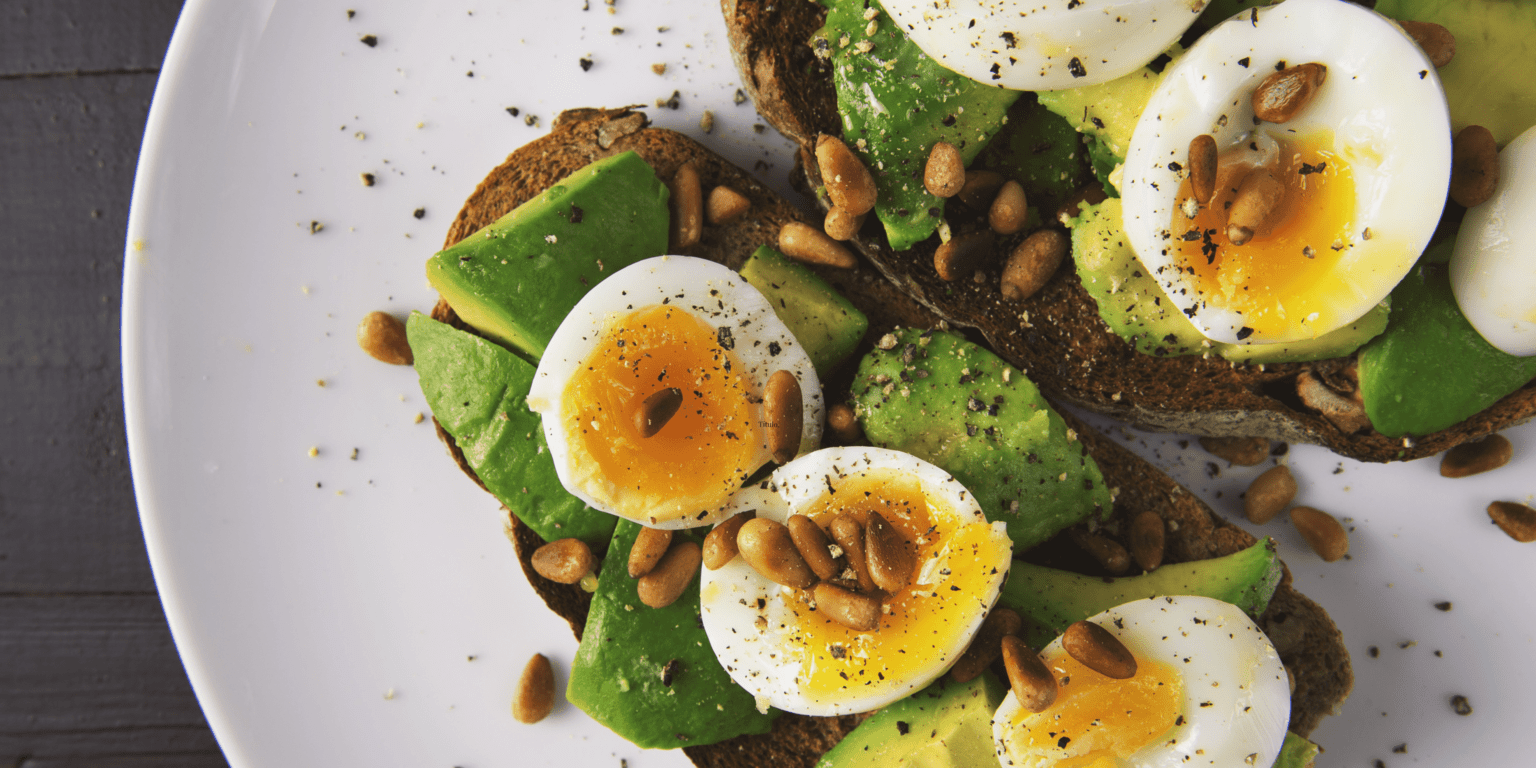Ketogenic Diet:
The Complete Guide to Healthy and Effective Eating

Ketogenic diet has gained popularity for its numerous health benefits, including weight loss, improved energy levels, and blood sugar control. In this article, we will explore everything you need to know about the ketogenic diet, how it works, what foods to consume and avoid, as well as tips to maximize your results.
What is the Ketogenic Diet?
The ketogenic diet is a dietary plan based on very low carbohydrate intake, high healthy fats, and moderate protein. The main goal is to put the body into a metabolic state called ketosis, where it begins to burn fat as the primary source of energy instead of carbohydrates.
How Does Ketosis Work?
When carbohydrate intake is drastically reduced, blood glucose levels decrease, and the liver begins to convert fat into ketones, which are used by the body as an energy source. This process has several health benefits, including the regulation of insulin levels and a reduction in inflammation.
Benefits of the Ketogenic Diet
- Fast and Effective Weight Loss
Studies show that the ketogenic diet can be more effective for weight loss than conventional low-fat diets. - Blood Sugar Control
Reducing carbohydrate consumption helps stabilize glucose levels, making the ketogenic diet beneficial for diabetics. - Increased Energy and Mental Clarity
Many people report greater focus and energy when replacing carbohydrates with fats as the primary energy source. - Reduced Inflammation and Improved Cardiovascular Health
Consuming healthy fats can help reduce inflammation and improve good cholesterol (HDL) levels.
- Fast and Effective Weight Loss
Foods Allowed on the Ketogenic Diet
If you want to follow the ketogenic diet, focus on foods that are rich in healthy fats and low in carbohydrates, such as:
- Meats and eggs (chicken, beef, fish, organic eggs)
- High-fat dairy (cheeses, cream, butter)
- Healthy oils (olive oil, coconut oil, avocado oil)
- Low-carb vegetables (spinach, kale, broccoli, zucchini)
- Low-sugar fruits (avocado, strawberries, blackberries)
- Nuts and seeds (almonds, cashews, walnuts, flaxseeds, chia seeds)
Foods to Avoid
To maintain ketosis, it’s essential to avoid foods high in carbohydrates, as they can raise blood glucose levels and interrupt fat burning. Here are the main groups to avoid:
- Refined Sugars – Found in sodas, cakes, and candies, these sugars cause insulin spikes and hinder fat burning. Alternative: Natural sweeteners like stevia or erythritol.
- Grains and Cereals – Foods like rice, wheat, oats, bread, and pasta are concentrated sources of carbohydrates that can quickly take the body out of ketosis. Alternative: Almond flour, coconut flour, or konjac noodles.
- Legumes – Beans, lentils, and chickpeas are healthy but rich in carbohydrates. Alternative: Low-starch vegetables like zucchini and cauliflower.
- High-Sugar Fruits – Bananas, grapes, and mangoes contain high amounts of fructose, making ketosis difficult. Alternative: Low-carb fruits like strawberries, raspberries, and avocado.
- Alcoholic Beverages and Sodas – Besides sugar, many alcoholic drinks and sodas contain hidden carbohydrates that affect ketosis. Alternative: Sparkling water, unsweetened tea, or coffee with coconut oil.

Possible Side Effects and How to Avoid Them
During the first few days of adapting to the ketogenic diet, it’s common to experience symptoms known as the “keto flu,” which may include headache, fatigue, dizziness, nausea, irritability, and muscle cramps. These symptoms occur because the body is adjusting to burning fat as the primary energy source and eliminating excess water and electrolytes previously retained due to carbohydrate consumption.
To minimize these effects and ensure a smoother transition, follow these strategies:
- Hydrate Properly: Initial water loss can cause dehydration and electrolyte imbalance. Drink at least 2 to 3 liters of water per day and replenish essential electrolytes like sodium, potassium, and magnesium, which help reduce cramps and fatigue.
- Increase Healthy Fat Intake: Prioritize sources like avocado, olive oil, coconut oil, ghee butter, and nuts to help your body enter ketosis more quickly and avoid energy crashes.
- Make Gradual Adjustments: Instead of cutting carbohydrates abruptly, reduce them progressively over one or two weeks, allowing your body to adapt without significant discomfort.
- Avoid Intense Workouts in the First Few Days: Your body may need an adjustment period before it can perform well in intense physical activities. Opt for light exercises like walking or yoga during this time.
If the symptoms are more intense, it might be helpful to supplement the diet with options like electrolyte salts, MCT oil (medium-chain triglycerides), and magnesium, which aid in the body’s adaptation. To make this transition smoother, consider a ketogenic supplement to balance electrolytes and provide energy efficiently (learn more here).
Typically, discomfort disappears between 3 to 7 days, and as the body adjusts, energy levels tend to improve significantly. If side effects persist, it may be necessary to adjust macronutrient and electrolyte intake.
Ketogenic Diet and Mental Health
In addition to physical benefits, the ketogenic diet can have a significant impact on mental health and brain function. Studies indicate that ketosis enhances the production of neurotransmitters, reducing brain inflammation and stabilizing neuronal energy levels. This can result in improved focus, mental clarity, and mood regulation.
Research suggests that ketosis may reduce symptoms of anxiety and depression, as fat as the primary energy source helps balance the production of neurotransmitters like serotonin and GABA, which are essential for emotional well-being. Additionally, reducing sharp spikes and drops in blood glucose levels can prevent mood swings associated with excessive consumption of refined carbohydrates.
In the field of neurological diseases, the ketogenic diet is already widely used as an adjunct therapy for treating drug-resistant epilepsy, significantly reducing seizure frequency in patients. Studies also suggest its potential in slowing the progression of Alzheimer’s disease, as ketone bodies provide an alternative energy source for the brain, combating cognitive decline.
Moreover, there is promising evidence regarding the effectiveness of the ketogenic diet in managing Bipolar Disorder and ADHD, thanks to its ability to stabilize mitochondrial function and reduce brain inflammation. Although more research is needed, initial results indicate that this dietary approach may be a powerful ally in promoting mental health.
Ketogenic Food Ideas for Everyday
Here are some ideas for everyday ketogenic meals, balanced and delicious, to keep you in ketosis:
Breakfast
- Cheese and spinach omelette with olive oil
- Avocado with salt and olive oil (optional)
- Coffee with coconut oil or ghee butter (bulletproof coffee)
- Unsweetened natural yogurt with chia seeds and walnuts
Morning Snack
- Boiled eggs with homemade mayonnaise
- High-fat cheese (cheddar or gouda) with some nuts
- A small serving of Brazil nuts or almonds
Lunch
- Grilled chicken or fish fillet with herb butter
- Green salad (arugula, lettuce, spinach) with olive oil and avocado
- Sauteed broccoli or cauliflower in butter
Afternoon Snack
- Avocado paste with tuna and olive oil (keto guacamole)
- A slice of high-fat cheese with sugar-free ham or salami
- Nuts (almonds, walnuts, macadamia) + a piece of dark chocolate (minimum 85% cocoa)
Dinner
- Red meat steak or salmon with butter and garlic sauce
- Grilled asparagus or zucchini in olive oil
- Cauliflower mash with Parmesan cheese
Late-Night Snack (Optional, if needed)
- Herbal tea with coconut milk or cream
- Cheese with some olives
- Light omelet with cheese and herbs
This menu is highly nutritious, rich in good fats, quality proteins, and low-carb vegetables, helping to maintain satiety and energy throughout the day!
The ketogenic diet can be an excellent alternative for those seeking to lose weight, improve energy levels, and gain mental health benefits. Besides promoting fat burning as the primary fuel source, this dietary approach can contribute to mood stabilization, increased focus, and even the prevention of metabolic diseases.
However, to achieve sustainable results, it is essential to follow a proper meal plan, ensuring balanced intake of macronutrients and micronutrients. Prioritizing natural foods, staying well-hydrated, and including electrolyte-rich sources are crucial steps to avoid side effects and optimize the benefits of ketosis.
If you want to begin this journey safely and effectively, consult a healthcare professional to tailor the diet to your individual needs. With discipline and smart choices, the ketogenic diet can transform your relationship with food and provide a healthier, more balanced lifestyle.
If you want to learn more about healthy habits and well-being, check out our article on 12 Foods That Help with Healthy Weight Loss.
Sources:
- Harvard T.H. Chan School of Public Health. “The Truth About Fats: The Good, the Bad, and the In-Between.” (Source)
- Paoli, A. et al. “Ketogenic Diet in Neuromuscular and Neurodegenerative Diseases.” Frontiers in Neuroscience, 2019.
- Dashti, H.M. et al. “Long-Term Effects of a Ketogenic Diet in Obese Patients.” Experimental & Clinical Cardiology, 2004.
- Westman, E.C. et al. “Low-Carbohydrate Nutrition and Metabolism.” The American Journal of Clinical Nutrition, 2007.
- Volek, J.S. & Phinney, S.D. “The Art and Science of Low Carbohydrate Living.” Beyond Obesity LLC, 2011.
- Cahill, G.F. “Fuel Metabolism in Starvation.” Annual Review of Nutrition, 2006.